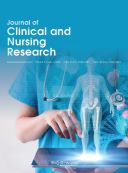Abstract
Objective: To explore the advantages of continuous nursing based on the Omaha system for patients with oral cancer surgery. Methods: 120 cases patients who were treated surgically for oral cancer from January 2020 to June 2022 were selected for this study; the ages of patients ranged from 26–78 years old. The patients were divided into a control group (60 patients) who would undergo routine nursing and an observation group who would undergo continuous nursing based on the Omaha. Statistical analysis was carried out on the clinical data. Results: After nursing, the quality of life, degree of understanding towards the disease, total satisfaction, and total rate of effectiveness of the observation group were significantly higher than those of the control group, and the negative emotion scores were significantly lower in the observation group (P < 0.05). Conclusion: Continuous nursing based on the Omaha system can not only improve the quality of life of oral cancer patients after surgery, but also alleviate the negative emotions of patients, expand the degree of understanding towards the disease, and improve their overall quality of life. Besides, high rates of nursing satisfaction and total effectiveness can promote the postoperative recovery of patients.
References
Liu X, Hou Y, Weng X, et al., 2020, The Application Effect of Continuous Psychological Nursing in Patients with Oral Cancer Surgery. Journal of Qiqihar Medical College, 41(19): 2468–2470.
Zhou J, Li J, Luo J, 2021, Research on the Impact of the Continuous Nursing Model Based on the Omaha System on the Quality of Life of Patients with Oral Cancer After Surgery. Psychology Monthly, 16(19): 96–97.
Zhu Y, 2020, Evaluation of the Application Effect of Individualized Dietary Care Combined with Oral Hygiene Management in Oral Cancer Surgery. Electronic Journal of Practical Clinical Nursing, 5(43): 168 + 182.
Chen Q, Ding C, Zhang F, et al., 2020, Application of Precise Enteral Nutrition Management in Postoperative Patients with Oral Cancer. Nursing and Rehabilitation, 19(12): 49–52.
Ye J, He X, Lin Z, et al., 2020, Observation on the Effect of Perioperative Personalized Nutritional Support on the Postoperative Recovery of Patients with Oral Malignant Tumors Undergoing Radical Surgery and Simultaneous Repair and Reconstruction. Chinese Journal of Practical Nursing, 36(31): 2455–2460.
Huang M, Liang H, Meng J, et al., 2021, Observation on the Effect of Perioperative Medical-Nurse Integration Model Nursing for Patients with Oral and Maxillofacial Malignant Tumors. Journal of Xuzhou Medical University, 41(5): 377–379.
Li W, 2021, Effects of Rational Emotive Therapy Combined with Cognitive Behavioral Intervention on Postoperative Anxiety in Patients with Oral and Maxillofacial Malignant Tumors. China Health Standard Management, 12(22): 159–162.
Guo H, Wang W, Xu C, et al., 2021, Analysis of Psychological Distress and Related Factors in Patients with Oral and Maxillofacial Malignant Tumors. Journal of Nursing, 36(6): 88–90 + 94.
Klionsky DJ, Abdel-Aziz AK, Abdelfatah S, et al., 2021, Guidelines for the Use and Interpretation of Assays for Monitoring Autophagy (4th edition)1. Autophagy, 17(1): 1–382. https://www.doi.org/10.1080/15548627.2020.1797280
Sen S, Sen S, Kumari MG, et al., 2021, Oral Malignant Melanoma: A Case Report. Prague Med Rep, 122(3): 222¬–227. https://www.doi.org/10.14712/23362936.2021.20
Liao PH, Chu CH, Hung YM, 2021, Tumor Subsites and Risk of Osteoradionecrosis of the Jaw in Patients with Oral Cavity Cancer: A National-Based Cohort Study. Eur Arch Otorhinolaryngol, 278(9): 3425–3433.
Gündogdu F, Sayar S, 2022, Oncology Nursing Practices in the Management of Chemotherapy-Related Oral Mucositis in Accordance with Evidence-Based Guidelines: A Descriptive and Cross-Sectional Study. Support Care Cancer, 30(11): 9549–9557.
Alqutaibi AY, Borzangy S, Al-Maweri SA, 2021, Early Detection of Oral Cancer and Potentially Malignant Disorders: Experiences, Practices, and Beliefs of Prosthodontists Practicing in Saudi Arabia. J Prosthet Dent, 126(4): 569–574.
Monsen RE, Herlofson BB, Gay C, 2021, A Mouth Rinse Based on a Tea Solution of Salvia Officinalis for Oral Discomfort in Palliative Cancer Care: A Randomized Controlled Trial. Support Care Cancer. 29(9): 4997–5007.
Warren D, Stanek J, Dsouza RM, et al., 2022, Interprofessional Collaboration Among Dental Hygiene and Nursing Students on the Oral Health of Cancer Patients. Nurs Educ Perspect, 43(6): 85–87.
